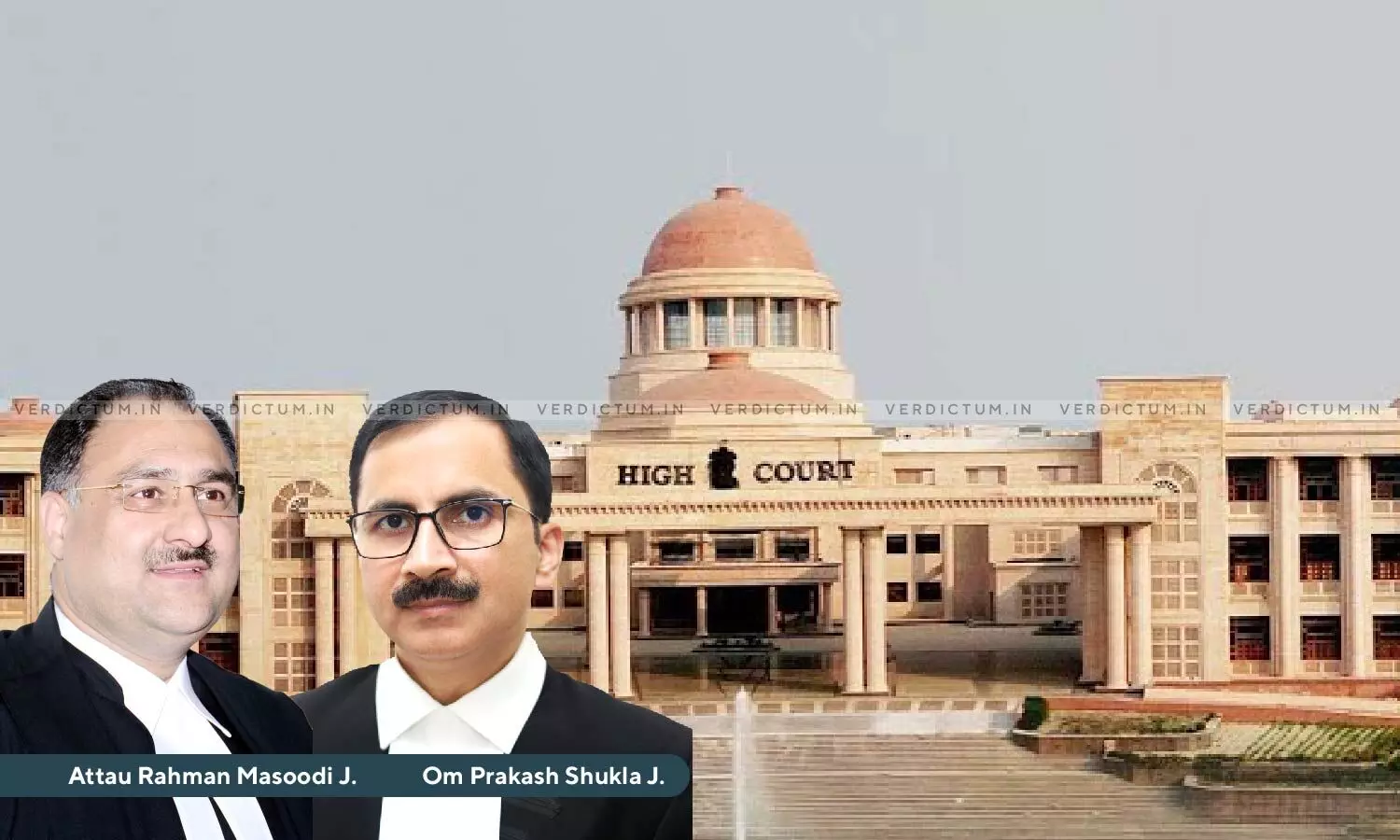
Retroactive Amendment Revoking Pension Benefits Available Under Existing Rules Violates Constitutional Rights Under Articles 14 & 16: Allahabad HC
 |
|The Allahabad High Court held that a retrospective amendment, that revoked benefits already accessible under existing rules, is a violation of constitutional rights under Articles 14 and 16.
The Court allowed a Petition challenging a 2021 retrospective amendment to Rule 15 of the Uttar Pradesh Electricity Regulatory Commission (Appointment and Condition of Service of the Chairperson and Members) Rules, 2008 (Rules), which subjected members appointed after April 1, 2005, to the National Pension Scheme (NPS), thereby denying them pension entitlement under the unamended Rules.
The Bench comprising Justice Attau Rahman Masoodi and Justice Om Prakash Shukla observed, “an amendment having retrospective operation which has the effect of taking away the benefit already available to the employee under the existing rule indeed would divest the employee from his vested rights and that being so it would be held to be violative of the rights guaranteed under Articles 14 and 16 of the constitution”.
Advocate Chandra Bhushan Pandey appeared for the Petitioners, Additional Chief Standing Counsel V. P. Nag appeared for the State and Advocate Sanjay Singh appeared for the Commission.
The Petitioners challenged the retrospective amendment to Rule 15 of the Uttar Pradesh Electricity Regulatory Commission (Appointment and Condition of Service of the Chairperson and Members) Rules, 2008 (Rules). The amendment, introduced in 2021, subjected members appointed on or after April 1, 2005, to the National Pension Scheme (NPS), thereby denying them the entitlement to draw pension under the unamended Rules, 2008.
The Court noted that Section 82 of the Electricity Act, 2003 (Act) establishes the State Electricity Regulatory Commission as a body corporate with perpetual succession and certain powers. It consists of not more than three Members, including the Chairperson, appointed by the State Government based on the Selection Committee's recommendation as per Section 85.
The Bench observed that the State Commission's term of office and conditions of service for Members are detailed in Section 89. The Uttar Pradesh Electricity Regulatory Commission was established through Regulations in 2004, pursuant to the Act. Section 180(2)(d) empowers the State Government to formulate Rules governing the salary, allowances, and other conditions of service for the Chairperson and Members of the State Commission under Section 89(2) of the Act.
In the exercise of powers conferred under Section 180(2)(d) of the Act and its regulations, the State Government notified the Rules, 2008, effective from January 01 2009, specifically Rule 15, outlining pension provisions for the Chairperson and Members of the Commission. Following notification, the petitioner, Indu Bhushan Pandey, assumed the position of Commission Member on September 28, 2013, becoming entitled to perks akin to a High Court Judge due to various statutory provisions.
Upon retirement, the Bench noted that the petitioner received pension benefits, but the State Government directed the Commission to address pension-related concerns. Subsequently, the Commission's Secretary cancelled the petitioner's pension, citing non-approval by the State Government and the applicability of the National Pension Scheme, 2005.
The Court observed that claiming pandemic-related delays and alleging a violation of statutory procedures in the amendment process, the petitioner argued against the retrospective application of the amendment.
The Court placed reliance on the case of State of Punjab v Kailash Nath [(1989) 1 SCC 321] and reiterated that an amendment with retrospective application, which took away benefits already available to the employee under the existing rule, did indeed strip the employee of their vested rights. The Court held that it would be violative of the rights guaranteed under Articles 14 and 16 of the Constitution.
The Court, in its analysis, emphasized that legislation should not be implemented retrospectively unless expressly stated, and observed that the amendment, by taking away vested rights, violated principles of fairness and equity. The Court highlighted the importance of protecting the rights of members who were entitled to a pension under the unamended Rules, 2008. The Court referred to precedents, including the State of Punjab and others v. Rafiq Masih (White Washer) and others [(2015) 4 SCC 334] which deemed recovery impermissible in certain situations, such as from retired employees or those due to retire within a year.
The Court issued the following directions:
“Ignoring the First Amendment made in 2021, only the petitioners of aforesaid three petitions are entitled for pension from the date of their retirement of 65 years.
For the above purpose, the impugned order dated 11.11.2021 passed in Writ-A No. 6486 of 2022 and the impugned order dated 04.04.2022 passed in Writ-A No. 6487 of 2022 are quashed.
Since the pension has been stopped to the petitioners, the respondents are directed to pay pension as also other allowances, as was drawing before the amendment in Rule 15 of Rules, 2021. In this regard, the order of cancellation of pension issued by the respondents is quashed.
Recovery, if any, issued in the case of the petitioners has also been quashed and the respondents are directed to pay the recovered amount within a period of two months from the date of receipt of a certified copy of this order”.
Accordingly, the Court allowed the Petitions.
Cause Title: Indu Bhushan Pandey v State Of UP (2024:AHC-LKO:6230-DB)